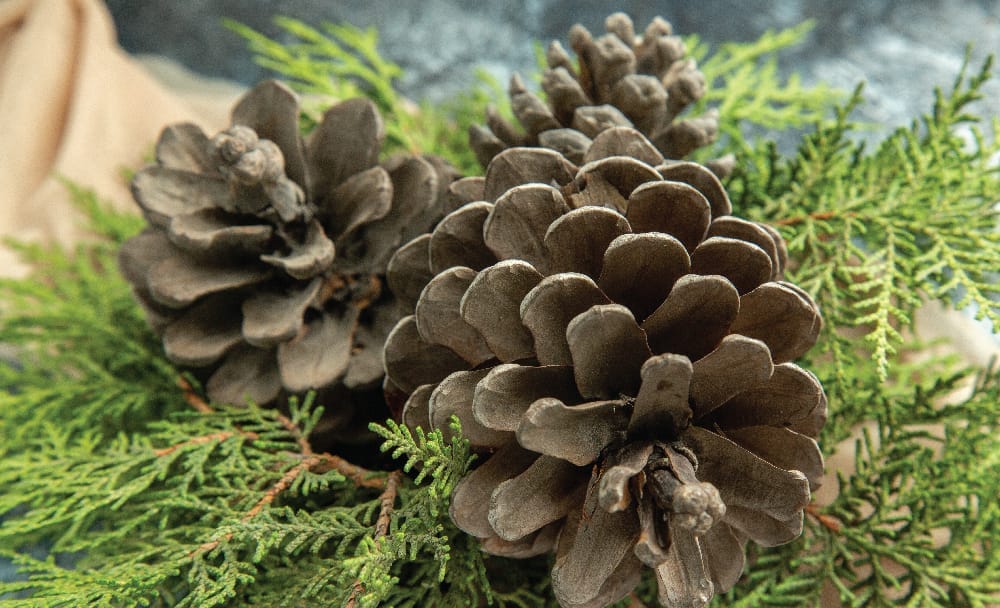When it comes to natural or plant-based medicine, there is no better source of information than Ayurveda. It is only in recent decades that researchers have begun exploring the health benefits of Ayurvedic herbs in clinical studies and one herb of great interest is Devadaru. The herb, which has long been used in traditional Ayurvedic medicine, is increasingly recognized for its therapeutic potential. Commonly known as deodara, Devadaru literally translates to ‘Wood of Gods’, a name that makes a lot more sense as we explore and understand its devdaru benefits for health.
Classification of the Herbal Plant
According to Ayurveda, some essential features of the Devadaru tree include its Laghu and Snigdh (light and slimy) nature with a Tikta Rasa (bitter taste) and Ushan Virya (hot potency).
The Laghu and Snigdha nature of the devadaru tree gives it its detoxifying properties and benefits the body by alleviating pain and discomfort caused by certain lifestyle complications. Tikta Rasa of the herb helps pacify the Kapha and Pitta Doshas while purifying blood and fighting infections in the body. Lastly, the Ushan Virya possesses Vata and Kapha Hara properties, which means that it helps pacify the Vata and Kapha Dosha and ensures good overall health.
Health Benefits of Devadaru
1. Enriched with Antioxidants
Nearly all the parts of the herbal devadaru tree are enriched with antioxidants that help strengthen the immune system and keep diseases at bay. Essential oils extracted from this plant contain antioxidants that greatly benefit the skin by lightening skin tone and reducing fine lines & wrinkles by tightening the skin tissues.
2. Natural Sedation Medicine
Essential oils extracted from the bark of the Devadaru tree have been found to have sedative properties that calm the brain and nervous system. External massage with deodar oil is reported to help with anxiety, insomnia and even depression in some cases.
3. Calming Effects
In ancient times, sages would sit under a Devadaru tree to meditate as it would induce relaxation. Similarly, in the modern world, Devadaru is widely used in aromatherapy. It is said to relieve stress by inducing a sense of calm and relaxation.
4. Enhances Skin Health and Speeds Wound Healing Process
Oil extracted from the this flower has anti-allergic and anti-inflammatory properties. When applied topically to wounded areas, it ensures that there’s no infection and boosts the healing process. A mixture of Devadaru, Guggulu and turmeric is recommended to treat fungal skin infections.
5. Restricts Toxin Formation in the Body
Ama or toxins build up in the body as a result of poor diet and lifestyle choices. Accumulation of Ama can pave the way for serious health complications. Therefore, getting rid of the body toxins is extremely crucial. This flower can help prevent the formation of such harmful toxins in the body.
Devadaru and its Positive Effect on Certain Health Conditions
1. Diabetes
Studies have found that this herb may help diabetics manage their blood sugar levels by stimulating insulin secretion. This is one of the most prominent devadaru benefits.
2. Gastro-Intestinal Diseases
It is rich in certain organic compounds that can help relieve constipation and other digestive problems effectively.
3. Osteoarthritis
According to Ayurveda, osteoarthritis results from aggravated Vata Dosha. Devadaru holds Vata pacifying properties and relieves the symptoms of the condition such as pain, swelling in the joints and restricted movements.
4. Malaria
Extensive researches have found that essential oils extracted from this flower effectively act against certain malaria-causing mosquitoes and conclude that the herb holds anti-malaria properties.


















